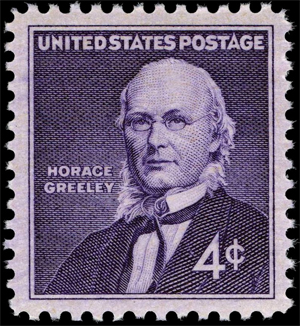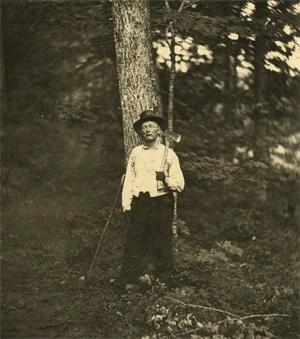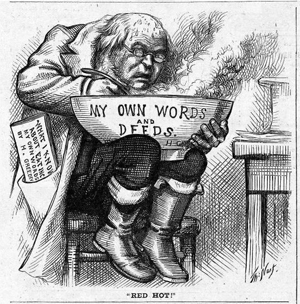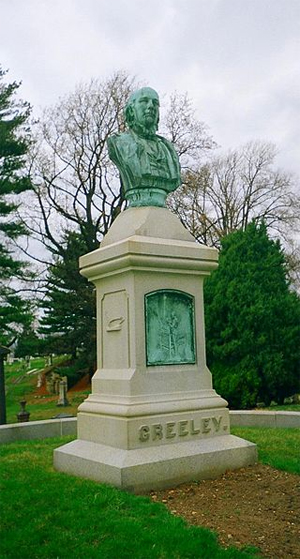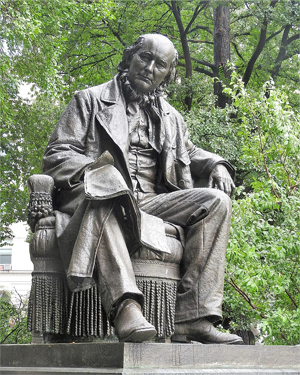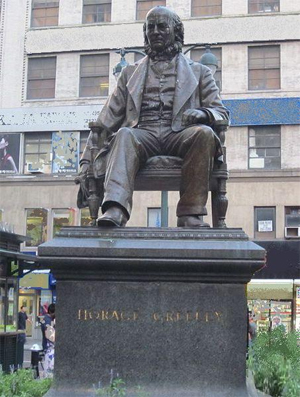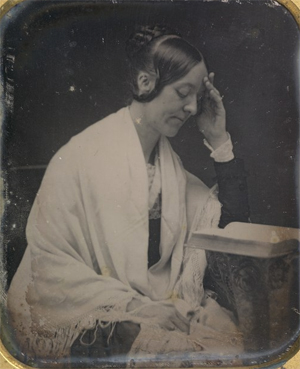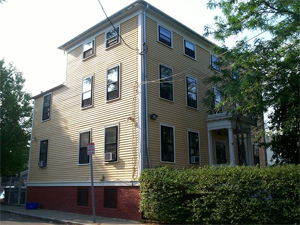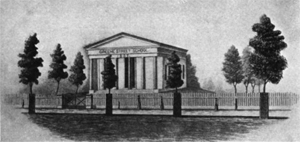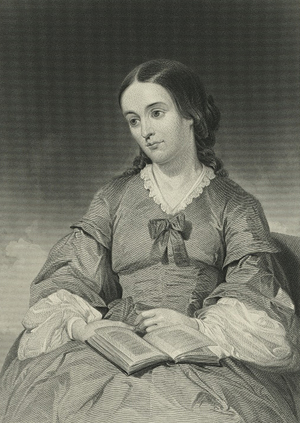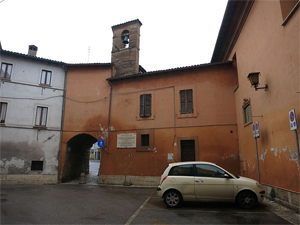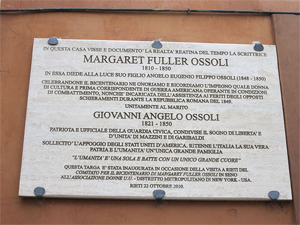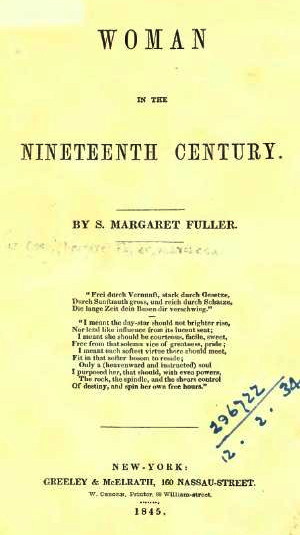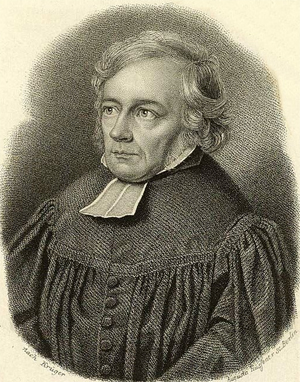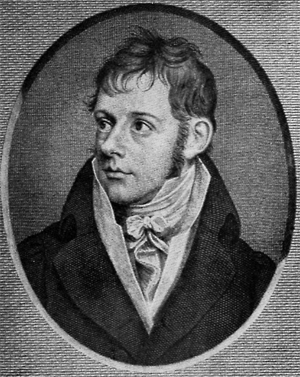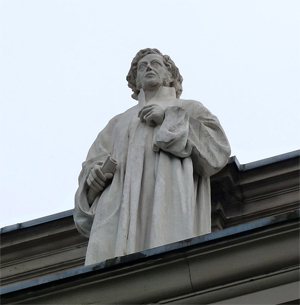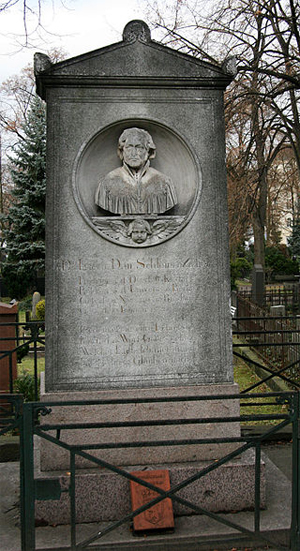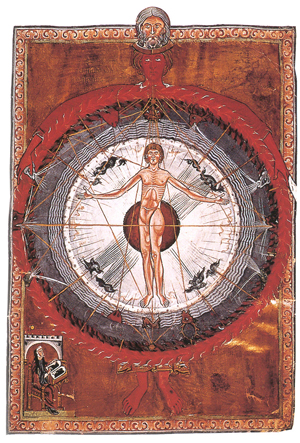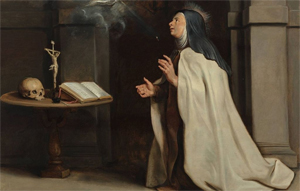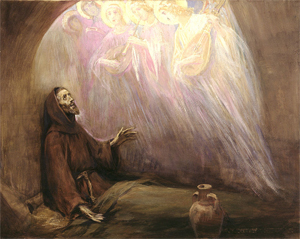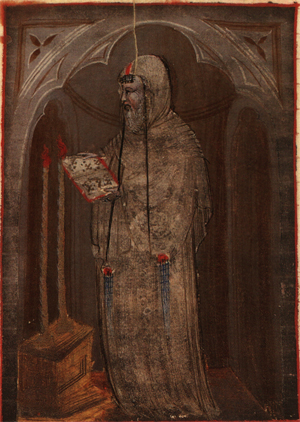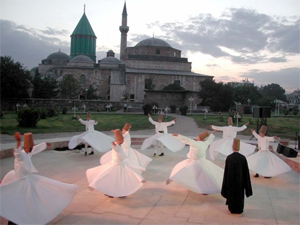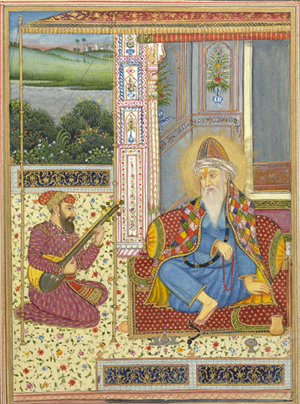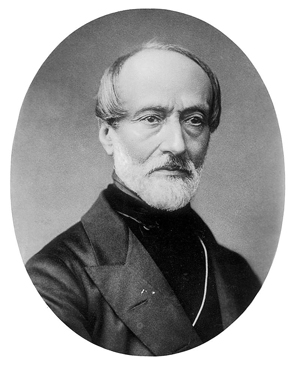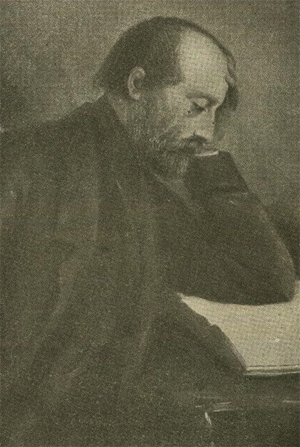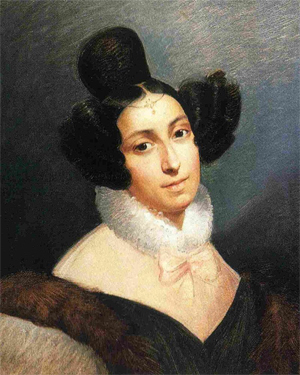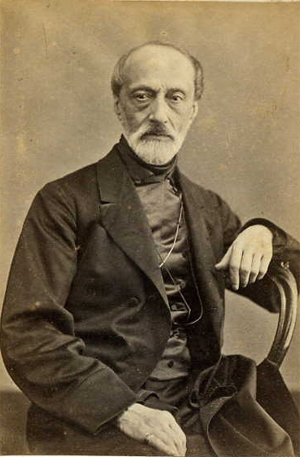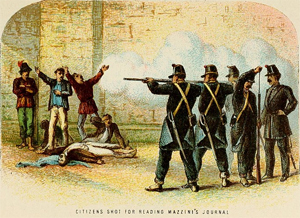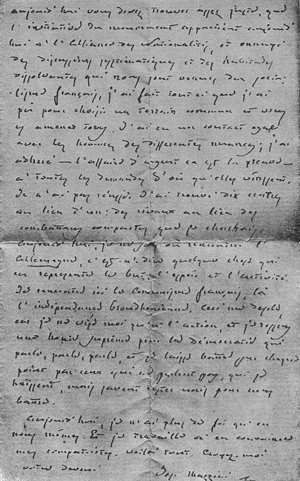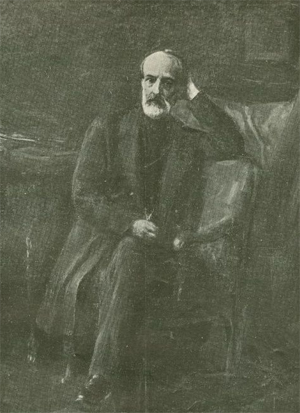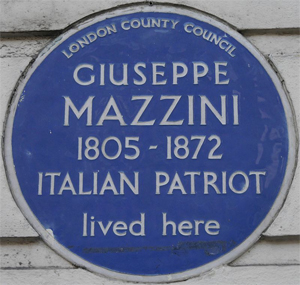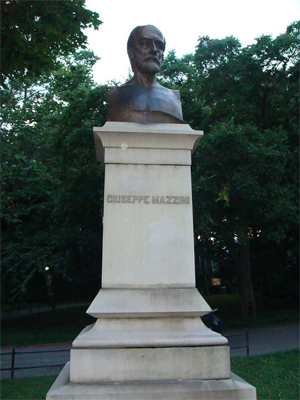Horace Greeley
by Wikipedia
Accessed: 5/20/20
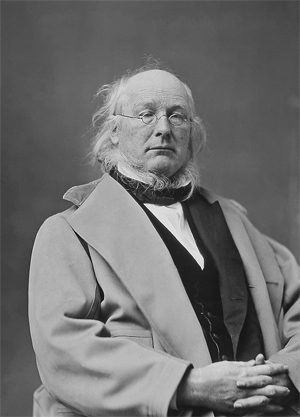
Horace Greeley
Member of the U.S. House of Representatives from New York's 6th district
In office: December 4, 1848 – March 3, 1849
Preceded by: David S. Jackson
Succeeded by: James Brooks
Personal details
Born: February 3, 1811, Amherst, New Hampshire, U.S.
Died: November 29, 1872 (aged 61), Pleasantville, New York, U.S.
Political party: Whig (Before 1854); Republican (1854–1872); Liberal Republican (1872)
Spouse(s): Mary Cheney
Horace Greeley (February 3, 1811 – November 29, 1872) was an American newspaper editor and publisher who was the founder and editor of the New-York Tribune, among the great newspapers of its time. Long active in politics, he served briefly as a congressman from New York, and was the unsuccessful candidate of the new Liberal Republican party in the 1872 presidential election against incumbent President Ulysses S. Grant, who won by a landslide.
Greeley was born to a poor family in Amherst, New Hampshire. He was apprenticed to a printer in Vermont and went to New York City in 1831 to seek his fortune. He wrote for or edited several publications and involved himself in Whig Party politics, taking a significant part in William Henry Harrison's successful 1840 presidential campaign. The following year, he founded the Tribune, which became the highest-circulating newspaper in the country through weekly editions sent by mail. Among many other issues, he urged the settlement of the American West, which he saw as a land of opportunity for the young and the unemployed. He popularized the slogan "Go West, young man, and grow up with the country."[a] He endlessly promoted utopian reforms such as socialism, vegetarianism, agrarianism, feminism, and temperance while hiring the best talent he could find.
Greeley's alliance with William H. Seward and Thurlow Weed led to him serving three months in the House of Representatives, where he angered many by investigating Congress in his newspaper. In 1854, he helped found and may have named the Republican Party. Republican newspapers across the nation regularly reprinted his editorials. During the Civil War, he mostly supported Lincoln, though he urged the president to commit to the end of slavery before he was willing to do so. After Lincoln's assassination, he supported the Radical Republicans in opposition to President Andrew Johnson. He broke with Republican President Ulysses Grant because of corruption and Greeley's sense that Reconstruction policies were no longer needed.
Greeley was the new Liberal Republican Party's presidential nominee in 1872. He lost in a landslide despite having the additional support of the Democratic Party. He was devastated by the death of his wife five days before the election and died himself one month later, before the Electoral College had met.
Early life
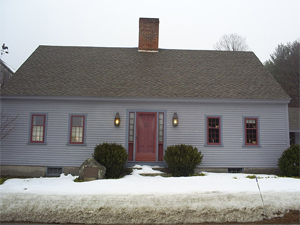
Horace Greeley Birthplace in Amherst, New Hampshire
Horace Greeley was born on February 3, 1811, on a farm about five miles from Amherst, New Hampshire. He could not breathe for the first twenty minutes of his life. It is suggested that this deprivation may have caused him to develop Asperger's syndrome—some of his biographers, such as Mitchell Snay, maintain that this condition would account for his eccentric behaviors in later life.[1] His father's family was of English descent, and his forebears included early settlers of Massachusetts and New Hampshire,[2] while his mother's family descended from Scots-Irish immigrants from the village of Garvagh in County Londonderry who had settled Londonderry, New Hampshire. Some of Greeley's maternal ancestors were present at the Siege of Derry during the Williamite War in Ireland in 1689.[3]
Greeley was the son of poor farmers Zaccheus and Mary (Woodburn) Greeley. Zaccheus was not successful, and moved his family several times, as far west as Pennsylvania. Horace attended the local schools and was a brilliant student.[4]
Seeing the boy's intelligence, some neighbors offered to pay Horace's way at Phillips Exeter Academy, but the Greeleys were too proud to accept charity. In 1820, Zaccheus's financial reverses caused him to flee New Hampshire with his family lest he be imprisoned for debt, and settle in Vermont. Even as his father struggled to make a living as a hired hand, Horace Greeley read everything he could—the Greeleys had a neighbor who let Horace use his library. In 1822, Horace ran away from home to become a printer's apprentice, but was told he was too young.[5]
In 1826, at age 15, he was made a printer's apprentice to Amos Bliss, editor of the Northern Spectator, a newspaper in East Poultney, Vermont. There, he learned the mechanics of a printer's job, and acquired a reputation as the town encyclopedia, reading his way through the local library.[6] When the paper closed in 1830, the young man went west to join his family, living near Erie, Pennsylvania. He remained there only briefly, going from town to town seeking newspaper employment, and was hired by the Erie Gazette. Although ambitious for greater things, he remained until 1831 to help support his father. While there, he became a Universalist, breaking from his Congregationalist upbringing.[7]
First efforts at publishing
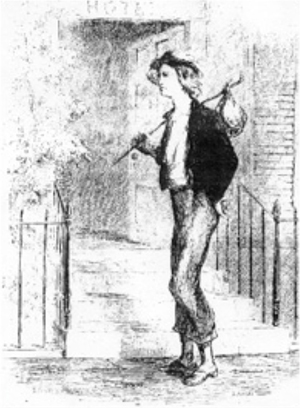
Early depiction of Greeley's first arrival in New York
In late 1831, Greeley went to New York City to seek his fortune. There were many young printers in New York who had likewise come to the metropolis, and he could only find short-term work.[8] In 1832, Greeley worked as an employee of the publication Spirit of the Times.[9] He built his resources and set up a print shop in that year. In 1833, he tried his hand with Horatio D. Sheppard at editing a daily newspaper, the New York Morning Post, which was not a success. Despite this failure and its attendant financial loss, Greeley published the thrice-weekly Constitutionalist, which mostly printed lottery results.[10]
On March 22, 1834, he published the first issue of The New-Yorker in partnership with Jonas Winchester.[9] It was less expensive than other literary magazines of the time and published both contemporary ditties and political commentary. Circulation reached 9,000, then a sizable number, yet it was ill-managed and eventually fell victim to the economic Panic of 1837.[11] He also published the campaign newssheet of the new Whig Party in New York for the 1834 campaign, and came to believe in its positions, including free markets with government assistance in developing the nation.[12]
Soon after his move to New York City, Greeley met Mary Young Cheney. Both were living at a boarding house run on the diet principles of Sylvester Graham, eschewing meat, alcohol, coffee, tea, and spices, as well as abstaining from the use of tobacco. Greeley was subscribing to Graham's principles at the time, and to the end of his life rarely ate meat. Mary Cheney, a schoolteacher, moved to North Carolina to take a teaching job in 1835. They were married in Warrenton, North Carolina on July 5, 1836, and an announcement duly appeared in The New-Yorker eleven days later. Greeley had stopped over in Washington, D.C. on his way south to observe Congress. He took no honeymoon with his new wife, returning to work while his wife took up a teaching job in New York City.[13]
One of the positions taken by The New-Yorker was that the unemployed of the cities should seek lives in the developing American West (in the 1830s, the West encompassed today's Midwestern states). The harsh winter of 1836–1837 and the financial crisis that developed soon after made many New Yorkers homeless and destitute. In his journal, Greeley urged new immigrants to buy guide books on the West, and Congress to make public lands available for purchase at cheap rates to settlers. He told his readers, "Fly, scatter through the country, go to the Great West, anything rather than remain here ... the West is the true destination."[14] In 1838, he advised "any young man" about to start in the world, "Go to the West: there your capabilities are sure to be appreciated and your energy and industry rewarded."[a][15]
In 1838, Greeley met Albany editor Thurlow Weed. Weed spoke for a liberal faction of the Whigs in his newspaper the Albany Evening Journal. He hired Greeley as editor of the state Whig newspaper for the upcoming campaign. The newspaper, the Jeffersonian, premiered in February 1838 and helped elect the Whig candidate for governor, William H. Seward.[11] In 1839, Greeley worked for several journals, and took a month-long break to go as far west as Detroit.[16]
Greeley was deeply involved in the campaign of the Whig candidate for president in 1840, William Henry Harrison. He published the major Whig periodical the Log Cabin, and also wrote many of the pro-Harrison songs that marked the campaign. These songs were sung at mass meetings, many organized and led by Greeley. According to biographer Robert C. Williams, "Greeley's lyrics swept the country and roused Whig voters to action."[17] Funds raised by Weed helped distribute the Log Cabin widely. Harrison and his running mate John Tyler were easily elected.[18]
Editor of the Tribune
Early years (1841–1848)
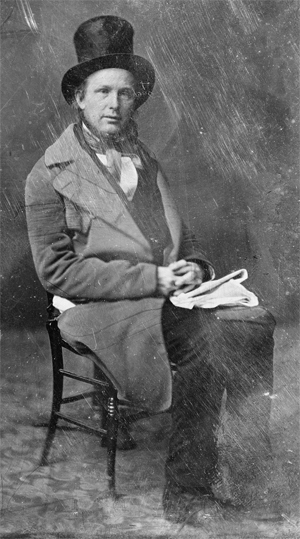
Photograph of Greeley by Mathew Brady, taken between 1844 and 1860
By the end of the 1840 campaign, the Log Cabin's circulation had risen to 80,000 and Greeley decided to establish a daily newspaper, the New-York Tribune.[19] At the time, New York had many newspapers, dominated by James Gordon Bennett's New York Herald, which with a circulation of about 55,000 had more readers than its combined competition. As technology advanced, it became cheaper and easier to publish a newspaper, and the daily press came to dominate the weekly, which had once been the more common format for news periodicals. Greeley borrowed money from friends to get started, and published the first issue of the Tribune on April 10, 1841 — the day of a memorial parade in New York for President Harrison, who had died after a month in office and been replaced by Vice President Tyler.[20]
In the first issue, Greeley promised that his newspaper would be a "new morning Journal of Politics, Literature, and General Intelligence".[20] New Yorkers were not initially receptive; the first week's receipts were $92 and expenses $525.[20] The paper was sold for a cent a copy by newsboys who purchased bundles of papers at a discount. The price of advertising was initially four cents a line but was quickly raised to six cents. Through the 1840s, the Tribune was four pages, that is, a single sheet folded. It initially had 600 subscribers and 5,000 copies were sold of the first issue.[21]
In the early days, Greeley's chief assistant was Henry J. Raymond, who a decade later founded The New York Times. To place the Tribune on a sound financial footing, Greeley sold a half-interest in it to attorney Thomas McElrath (1807–1888), who became publisher of the Tribune (Greeley was editor) and ran the business side. Politically, the Tribune backed Kentucky Senator Henry Clay, who had unsuccessfully sought the presidential nomination that fell to Harrison, and supported Clay's American System for development of the country. Greeley was one of the first newspaper editors to have a full-time correspondent in Washington, an innovation quickly followed by his rivals.[20] Part of Greeley's strategy was to make the Tribune a newspaper of national scope, not merely local.[22] One factor in establishing the paper nationally was the Weekly Tribune, created in September 1841 when the Log Cabin and The New-Yorker were merged. With an initial subscription price of $2 a year,[23] this was sent to many across the United States by mail and was especially popular in the Midwest.[24] In December 1841, Greeley was offered the editorship of the national Whig newspaper, the Madisonian. He demanded full control, and declined when not given it.[25]
Greeley, in his paper, initially supported the Whig program.[26] As divisions between Clay and President Tyler became apparent, he supported the Kentucky senator and looked to a Clay nomination for president in 1844.[25] However, when Clay was nominated by the Whigs, he was defeated by the Democrat, former Tennessee governor James K. Polk, though Greeley worked hard on Clay's behalf.[27] Greeley had taken positions in opposition to slavery as editor of The New-Yorker in the late 1830s, opposing the annexation of the slaveholding Republic of Texas to the United States.[28] In the 1840s, Greeley became an increasingly vocal opponent of the expansion of slavery.[26]
Greeley hired Margaret Fuller in 1844 as first literary editor of the Tribune, for which she wrote over 200 articles. She lived with the Greeley family for several years, and when she moved to Italy, he made her a foreign correspondent.[29] He promoted the work of Henry David Thoreau, serving as literary agent and seeing to it that Thoreau's work was published.[30] Ralph Waldo Emerson also benefited from Greeley's promotion.[31] Historian Allan Nevins explained:
The Tribune set a new standard in American journalism by its combination of energy in newsgathering with good taste, high moral standards, and intellectual appeal. Police reports, scandals, dubious medical advertisements, and flippant personalities were barred from its pages; the editorials were vigorous but usually temperate; the political news was the most exact in the city; book reviews and book-extracts were numerous; and as an inveterate lecturer Greeley gave generous space to lectures. The paper appealed to substantial and thoughtful people.[32]
Greeley, who had met his wife at a Graham boarding house, became enthusiastic about other social movements that did not last and promoted them in his paper. He subscribed to the views of Charles Fourier, a French social thinker, then recently deceased, who proposed the establishment of settlements called "phalanxes" with a given number of people from various walks of life, who would function as a corporation and among whose members profits would be shared. Greeley, in addition to promoting Fourierism in the Tribune, was associated with two such settlements, both of which eventually failed, though the town that eventually developed on the site of the one in Pennsylvania was after his death renamed Greeley.[33]
Congressman (1848–1849)
In November 1848, Congressman David S. Jackson, a Democrat, of New York's 6th district was unseated for election fraud. Jackson's term was to expire in March 1849 but, during the 19th century, Congress convened annually in December, making it important to fill the seat. Under the laws then in force, the Whig committee from the Sixth District chose Greeley to run in the special election for the remainder of the term, though they did not select him as their candidate for the seat in the following Congress. The Sixth District, or Sixth Ward as it was commonly called, was mostly Irish-American, and Greeley proclaimed his support for Irish efforts towards independence from Great Britain. He easily won the November election and took his seat when Congress convened in December 1848.[34] Greeley's selection was procured by the influence of his ally, Thurlow Weed.[35]
As a congressman for three months, Greeley introduced legislation for a homestead act that would allow settlers who improved land to purchase it at low rates—a fourth of what speculators would pay. He was quickly noticed because he launched a series of attacks on legislative privileges, taking note of which congressmen were missing votes, and questioning the office of House Chaplain. This was enough to make him unpopular. But he outraged his colleagues when on December 22, 1848, the Tribune published evidence that many congressmen had been paid excessive sums as travel allowance. In January 1849, Greeley supported a bill that would have corrected the issue, but it was defeated. He was so disliked, he wrote a friend, that he had "divided the House into two parties—one that would like to see me extinguished and the other that wouldn't be satisfied without a hand in doing it."[36]
Other legislation introduced by Greeley, all of which failed, included attempts to end flogging in the Navy and to ban alcohol from its ships. He tried to change the name of the United States to "Columbia", abolish slavery in the District of Columbia, and increase tariffs.[35] One lasting effect of the term of Congressman Greeley was his friendship with a fellow Whig, serving his only term in the House, Illinois's Abraham Lincoln. Greeley's term ended after March 3, 1849, and he returned to New York and the Tribune, having, according to Williams, "failed to achieve much except notoriety".[37]
Influence (1849–1860)
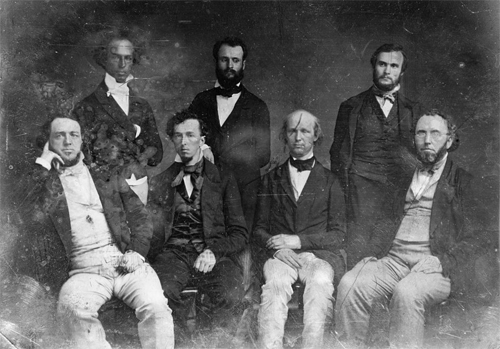
New-York Tribune editorial staff, with Greeley third from the left in the front row
By the end of the 1840s, Greeley's Tribune was not only solidly established in New York as a daily paper, it was highly influential nationally through its weekly edition, which circulated in rural areas and small towns. Journalist Bayard Taylor deemed its influence in the Midwest second only to that of the Bible. According to Williams, the Tribune could mold public opinion through Greeley's editorials more effectively than could the president. Greeley sharpened those skills over time, laying down what future Secretary of State John Hay, who worked for the Tribune in the 1870s, deemed the "Gospel according to St. Horace".[38]
The Tribune remained a Whig paper, but Greeley took an independent course. In 1848, he had been slow to endorse the Whig presidential nominee, General Zachary Taylor, a Louisianan and hero of the Mexican–American War. Greeley opposed both the war and the expansion of slavery into the new territories seized from Mexico and feared Taylor would support expansion as president. Greeley considered endorsing former President Martin Van Buren, candidate of the Free Soil Party, but finally endorsed Taylor, who was elected; the editor was rewarded for his loyalty with the congressional term.[39] Greeley vacillated on support for the Compromise of 1850, which gave victories to both sides of the slavery issue, before finally opposing it. In the 1852 presidential campaign, he supported the Whig candidate, General Winfield Scott, but savaged the Whig platform for its support of the Compromise. "We defy it, execrate it, spit upon it."[40] Such party divisions contributed to Scott's defeat by former New Hampshire senator Franklin Pierce.[41]
In 1853, with the party increasingly divided over the slavery issue, Greeley printed an editorial disclaiming the paper's identity as Whig and declaring it to be nonpartisan. He was confident that the paper would not suffer financially, trusting in reader loyalty. Some in the party were not sorry to see him go: the Republic, a Whig organ, mocked Greeley and his beliefs: "If a party is to be built up and maintained on Fourierism, Mesmerism, Maine Liquor laws, Spiritual Rappings, Kossuthism, Socialism, Abolitionism, and forty other isms, we have no disposition to mix with any such companions."[42] When, in 1854, Illinois Senator Stephen Douglas introduced his Kansas–Nebraska Bill, allowing residents of each territory to decide whether it would be slave or free, Greeley strongly fought the legislation in his newspaper. After it passed, and the Border War broke out in Kansas Territory, Greeley was part of efforts to send free-state settlers there, and to arm them.[43] In return, proponents of slavery recognized Greeley and the Tribune as adversaries, stopping shipments of the paper to the South and harassing local agents.[44] Nevertheless, by 1858, the Tribune reached 300,000 subscribers through the weekly edition, and it would continue as the foremost American newspaper through the years of the Civil War.[45]
The Kansas–Nebraska Act helped destroy the Whig Party, but a new party with opposition to the spread of slavery at its heart had been under discussion for some years. Beginning in 1853, Greeley participated in the discussions that led to the founding of the Republican Party and may have coined its name.[46] Greeley attended the first New York state Republican Convention in 1854 and was disappointed not to be nominated either for governor or lieutenant governor. The switch in parties coincided with the end of two of his longtime political alliances: in December 1854, Greeley wrote that the political partnership between Weed, William Seward (who was by then senator after serving as governor) and himself was ended "by the withdrawal of the junior partner".[47] Greeley was angered over patronage disputes and felt that Seward was courting the rival The New York Times for support.[48]
In 1853, Greeley purchased a farm in rural Chappaqua, New York, where he experimented with farming techniques.[49] In 1856, he designed and built Rehoboth, one of the first concrete structures in the United States.[50]
The Tribune continued to print a wide variety of material. In 1851, its managing editor, Charles Dana, recruited Karl Marx as a foreign correspondent in London. Marx collaborated with Friedrich Engels on his work for the Tribune, which continued for over a decade, covering 500 articles. Greeley felt compelled to print, "Mr. Marx has very decided opinions of his own, with some of which we are far from agreeing, but those who do not read his letters are neglecting one of the most instructive sources of information on the great questions of current European politics."[51]
Greeley sponsored a host of reforms, including pacifism and feminism and especially the ideal of the hard-working free laborer. Greeley demanded reforms to make all citizens free and equal. He envisioned virtuous citizens who would eradicate corruption. He talked endlessly about progress, improvement, and freedom, while calling for harmony between labor and capital.[52] Greeley's editorials promoted social democratic reforms and were widely reprinted. They influenced the free-labor ideology of the Whigs and the radical wing of the Republican Party, especially in promoting the free-labor ideology. Before 1848 he sponsored an American version of Fourierist socialist reform. but backed away after the failed revolutions of 1848 in Europe.[53] To promote multiple reforms Greeley hired a roster of writers who later became famous in their own right, including Margaret Fuller,[54] Charles Anderson Dana, George William Curtis, William Henry Fry, Bayard Taylor, Julius Chambers and Henry Jarvis Raymond, who later co-founded The New York Times.[55] For many years George Ripley was the staff literary critic.[56] Jane Swisshelm was one of the first women hired by a major newspaper.[57]
In 1859, Greeley traveled across the continent to see the West for himself, to write about it for the Tribune, and to publicize the need for a transcontinental railroad.[58] He also planned to give speeches to promote the Republican Party.[59] In May 1859, he went to Chicago, and then to Lawrence in Kansas Territory, and was unimpressed by the local people. Nevertheless, after speaking before the first ever Kansas Republican Party Convention at Osawatomie, Kansas, Greeley took one of the first stagecoaches to Denver, seeing the town then in course of formation as a mining camp of the Pike's Peak Gold Rush.[58] Sending dispatches back to the Tribune, Greeley took the Overland Trail, reaching Salt Lake City, where he conducted a two-hour interview with the Mormon leader Brigham Young – the first newspaper interview Young had given. Greeley encountered Native Americans and was sympathetic but, like many of his time, deemed Indian culture inferior. In California, he toured widely and gave many addresses.[60]
1860 presidential election
Main articles: 1860 Republican National Convention and 1860 United States presidential election
Although he remained on cordial terms with Senator Seward, Greeley never seriously considered supporting him in his bid for the Republican nomination for president. Instead, during the run-up to the 1860 Republican National Convention in Chicago, he pressed the candidacy of former Missouri representative Edward Bates, an opponent of the spread of slavery who had freed his own slaves. In his newspaper, in speeches, and in conversation, Greeley pushed Bates as a man who could win the North and even make inroads in the South. Nevertheless, when one of the dark horse candidates for the Republican nomination, Abraham Lincoln, came to New York to give an address at Cooper Union, Greeley urged his readers to go hear Lincoln, and was among those who accompanied him to the platform. Greeley thought of Lincoln as a possible nominee for vice president.[61]
Greeley attended the convention as a substitute for a delegate from Oregon who was unable to attend. In Chicago, he promoted Bates but deemed his cause hopeless and felt that Seward would be nominated. In conversations with other delegates, he predicted that, if nominated, Seward could not carry crucial battleground states such as Pennsylvania.[62] Greeley's estrangement from Seward was not widely known, giving the editor more credibility.[63] Greeley (and Seward) biographer Glyndon G. Van Deusen noted that it is uncertain how great a part Greeley played in Seward's defeat by Lincoln—he had little success gaining delegates for Bates. On the first two ballots, Seward led Lincoln, but on the second only by a small margin. After the third ballot, on which Lincoln was nominated, Greeley was seen among the Oregon delegation, a broad smile on his face.[64] According to Pulitzer Prize-winning historian Doris Kearns Goodwin, "it is hard to imagine Lincoln letting Greeley's resentment smolder for years as Seward did".[65]
Seward's forces made Greeley a target of their anger at the senator's defeat. One subscriber cancelled, regretting the three-cent stamp he had to use on the letter; Greeley supplied a replacement. When he was attacked in print, Greeley responded in kind. He launched a campaign against corruption in the New York Legislature, hoping voters would defeat incumbents and the new legislators would elect him to the Senate when Seward's term expired in 1861 (senators were until 1913 elected by state legislatures). But his main activity during the campaign of 1860 was boosting Lincoln and denigrating the other presidential candidates. He made it clear that a Republican administration would not interfere with slavery where it already was and denied that Lincoln was in favor of voting rights for African Americans. He kept up the pressure until Lincoln was elected in November.[66]
Lincoln soon let it be known that Seward would be Secretary of State, meaning he would not be a candidate for re-election to the Senate. Weed wanted William M. Evarts elected in his place, while the anti-Seward forces in New York gathered around Greeley. The crucial battleground was the Republican caucus, as the party held the majority in the legislature. Greeley's forces did not have enough votes to send him to the Senate, but they had enough strength to block Evarts's candidacy. Weed threw his support to Ira Harris, who had already received several votes, and who was chosen by the caucus and elected by the legislature in February 1861. Weed was content to have blocked the editor, and stated that he had "paid the first installment on a large debt to Mr. Greeley".[67]
Civil War
Main article: American Civil War
War breaks out
After Lincoln's election, there was talk of secession in the South. The Tribune was initially in favor of peaceful separation, with the South becoming a separate nation. According to an editorial on November 9:
If the Cotton States shall become satisfied that they can do better out of the Union than in it, we insist on letting them go in peace. The right to secede may be a revolutionary one, but it exists nevertheless ... And whenever a considerable section of our Union shall deliberately resolve to go out, we shall resist all coercive measures designed to keep it in. We hope never to live in a republic whereof one section is pinned to the residue by bayonets.[68]
Similar editorials appeared through January 1861, after which Tribune editorials took a hard line on the South, opposing concessions.[69] Williams concludes that "for a brief moment, Horace Greeley had believed that peaceful secession might be a form of freedom preferable to civil war".[70] This brief flirtation with disunion would have consequences for Greeley—it was used against him by his opponents when he ran for president in 1872.[70]
In the days leading up to Lincoln's inauguration, the Tribune headed its editorial columns each day, in large capital letters: "No compromise!/No concession to traitors!/The Constitution as it is!"[71] Greeley attended the inauguration, sitting close to Senator Douglas, as the Tribune hailed the beginning of Lincoln's presidency. When southern forces attacked Fort Sumter, the Tribune regretted the loss of the fort, but applauded the fact that war to subdue the rebels, who formed the Confederate States of America, would now take place. The paper criticized Lincoln for not being quick to use force.[72]
Through the spring and early summer of 1861, Greeley and the Tribune beat the drum for a Union attack. "On to Richmond", a phrase coined by a Tribune stringer, became the watchword of the newspaper as Greeley urged the occupation of the rebel capital of Richmond before the Confederate Congress could meet on July 20. In part because of the public pressure, Lincoln sent the half-trained Union Army into the field at the First Battle of Manassas in mid-July where it was soundly beaten. The defeat threw Greeley into despair, and he may have suffered a nervous breakdown.[73]
"Prayer of Twenty Millions"
Restored to health by two weeks at the farm he had purchased in Chappaqua, Greeley returned to the Tribune and a policy of general backing of the Lincoln administration, even having kind words to say about Secretary Seward, his old foe. He was supportive even during the military defeats of the first year of the war. Late in 1861, he proposed to Lincoln through an intermediary that the president provide him with advance information as to its policies, in exchange for friendly coverage in the Tribune. Lincoln eagerly accepted, "having him firmly behind me will be as helpful to me as an army of one hundred thousand men."[74]
By early 1862, however, Greeley was again sometimes critical of the administration, frustrated by the failure to win decisive military victories, and perturbed at the president's slowness to commit to the emancipation of the slaves once the Confederacy was defeated, something the Tribune was urging in its editorials. This was a change in Greeley's thinking which began after First Manassas, a shift from preservation of the Union being the primary war purpose to wanting the war to end slavery. By March, the only action against slavery that Lincoln had backed was a proposal for compensated emancipation in the border states that had remained loyal to the Union, though he signed legislation abolishing slavery in the District of Columbia.[75] Lincoln supposedly asked a Tribune correspondent, "What in the world is the matter with Uncle Horace? Why can't he restrain himself and wait a little while?"[76]
Greeley's prodding of Lincoln culminated in a letter to him on August 19, 1862, reprinted on the following day in the Tribune as the "Prayer of Twenty Millions". By this time, Lincoln had informed his Cabinet of the preliminary Emancipation Proclamation he had composed, and Greeley was told of it the same day the prayer was printed. In his letter, Greeley demanded action on emancipation and strict enforcement of the Confiscation Acts. Lincoln must "fight slavery with liberty", and not fight "wolves with the devices of a sheep".[77]
Lincoln's reply would become famous, much more so than the prayer that provoked it.[78] "My paramount object in this struggle is to save the Union, and is not either to save or to destroy slavery. If I could save the Union without freeing any slave, I would do it, and if I could save it by freeing all the slaves I would do it; and if I could save it by freeing some and leaving others alone I would also do that. What I do about slavery, and the colored race, I do because it helps to save the Union; and what I forbear, I forbear because I do not believe it would help to save the Union."[79] Lincoln's statement angered abolitionists; William Seward's wife Frances complained to her husband that Lincoln had made it seem "that the mere keeping together a number of states is more important than human freedom."[79] Greeley felt Lincoln had not truly answered him, "but I'll forgive him everything if he'll issue the proclamation".[78] When Lincoln did, on September 22, Greeley hailed the Emancipation Proclamation as a "great boon of freedom". According to Williams, "Lincoln's war for Union was now also Greeley's war for emancipation."[80]

